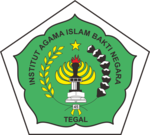Upaya Guru Kelas dalam Meningkatkan Prestasi Belajar Fiqih Peserta Didik di MI Salafi Dukuhsembung
DOI:
https://doi.org/10.62490/latahzan.v14i2.331Keywords:
Classroom Teacher, Learning Achievement, Fiqh, LearnersAbstract
This research is motivated by the teacher's position is very significant in education as a facilitator and guide, so that the teacher's efforts determine the success of the learning process. The purpose of this research is to find out and research scientifically and systematically about the efforts, obstacles and solutions made by class teachers to improve the fiqh learning achievement of students in Salafi Madrasah Ibtidaiyah. To find out the results in improving the achievement of fiqh subjects of students in Madrasah Ibtidaiyah Salafi Dukuhsembung Pangkah Tegal. This research based on the location of the data source is categorized as field research, and in terms of the nature of the data is included in qualitative research. Data collection methods using observation interviews and documentation. Data analysis was conducted starting from data reduction, data presentation, and drawing conclusions. Research results: 1) The efforts of class teachers in improving students' fiqh learning achievement are as follows: a) providing motivation to students, b) creating good conditions in the teaching and learning process, c) using learning methods that are in accordance with the situation and conditions of students, d) using interesting learning media in accordance with learning materials. 2) The inhibiting factors of the class teacher's efforts in improving the fiqh learning achievement of MI Salafi Dukuhsembung Pangkah Tegal students are a) There are students who have less ability, b) Limited supervision from the madrasah to supervise students. c) Lack of awareness of the students of the importance of learning. 3) The solution of the class teacher in improving the fiqh learning achievement of MI Salafi Dukuhsembung Pangkah Tegal students are: a) the school provides special guidance to students who are less capable. b) There is cooperation from parents and schools to provide supervision, with the hope that students will further improve their learning achievement, c) Raising awareness of students to like reading subject books rather than watching television.
References
Asrof Syafi’i, A. P. (2008). Kompetensi Dasar Guru Profesional dalam Mengembangkan Potensi Akademik. STAIN Tulungagung Press.
Daradjat, Z. (1992). Ilmu Pendidikan Islam. Bumi Aksara.
Dimyati. (1999). Belajar dan Pembelajaran. Rineka Cipta.
Djamarah, S. B. (2005). Guru dan Anak Didik Dalam Interaksi Edukatif. Rineka Cipta.
E. Mulyasa. (2007). Standar Kompetensi dan Sertifikasi Guru. Remaja Rosdakarya.
Fatah, N. (2004). Landasan Manajemen Pendidikan. Rosdakarya.
Nasution, S. (1986). Didaktif Asas-Asas Mengajar. Jemmare.
Ngalim Purwanto. (2022). Prinsip-prinsip dan Teknik Evaluasi Pengajaran. Rosdakarya.
Sardiman. (1994). Interaksi dan Motivasi Belajar Mengajar. Rineka Cipta.
Sudjana, N. (1989). Cara Belajar Siswa Aktif dalam Proses Belajar Mengajar. Sinar Baru.
Suryabrata, S. (1999). Psikologi Pendidikan. Rajawali Press.
Syafi’i, A. (2008). E8Q dan Kompetensi Guru PAI. STAIN Tulungagung Press.
Syafi’i Karim. (1977). Fiqih Ushul Fiqih. Pustaka Setia.
Syah, M. (1999). Psikologi Pendidikan dengan Pendekatan Baru. Remaja Rosdakarya.
Syarifuddin, A. (1977). No Title. Wahana Ilmu.
Tafsir, A. (2005). Ilmu Pendidikan Dalam Perspektif Islam. Remaja Rosdakarya.
Winkel, W. S. (1989). Psikologi Pengajaran. Gramedia.
Zuhairini, A. G. (1993). Metodologi Pembelajaran Pendidikan Agama Islam. UM Press.
Downloads
Published
How to Cite
Issue
Section
License
Copyright (c) 2022 Kusuma Ningtyas Pramita Resya, Kastinah

This work is licensed under a Creative Commons Attribution-NonCommercial-ShareAlike 4.0 International License.
The copyright of the received article shall be assigned to the journal as the publisher of the journal. The intended copyright includes the right to publish the article in various forms (including reprints). The journal maintains the publishing rights to the published articles.
In line with the license, authors and any users (readers and other researchers) are allowed to share and adapt the material. In addition, the material must be given appropriate credit, provided with a link to the license, and indicated if changes were made. If authors remix, transform, or build upon the material, authors must distribute their contributions under the same license as the original.
















